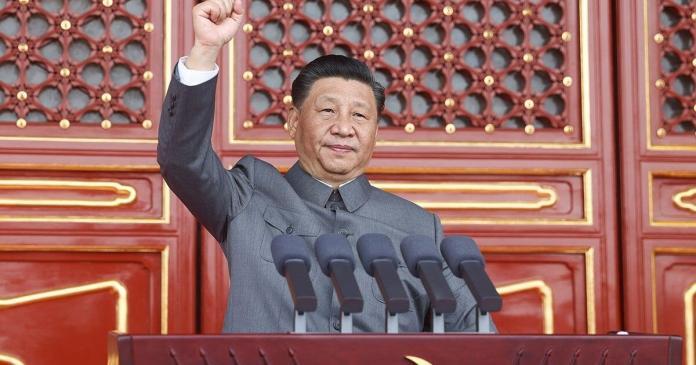
As if there is not enough to worry about in the face of China’s aggressive encroachments in the South China Sea, now its neighbors also have to lose sleep over its attempts to change their political and social landscapes.
According to Joshua Kurlantzick, Senior Fellow for Southeast Asia at the Council on Foreign Relations (CFR), a leading think tank in the United States, China has been “increasingly trying to influence other countries’ domestic politics and societies through the use of media, information, disinformation, and more old fashioned types of influence tactics like paying politicians and trying to directly meddle in elections, wielding control of local business and student associations, and other tactics.”
In Kurlantzick’s latest book, “Beijing’s Global Media Offensive: China’s Uneven Campaign to Influence Asia and the World,” he argues that China under President Xi Jinping has increasingly wielded “sharp power” not only to spread a favorable view of China’s policies and the situation within China, but also to draw other countries into China’s orbit in case of conflict with rival powers.
“Sharp power” refers to the use of underhanded media campaigns and the infiltration of the politics, governance, private sector and social organizations to carry out a foreign government’s objectives in a target country. It is thus a subtler alternative to the use of hard power – the resort to military aggression or threats and economic sanctions – to influence another country. It is also the insidious alternative to soft power, which is achieved through the legitimate use of public diplomacy; cultural, educational and social exchange programs; and public relations and advertising, among other tools.
An apparent model for China’s use of sharp power is the Russian method of influencing political situations in other countries. Much has been written about Russia’s alleged efforts to help Donald Trump’s successful presidential election campaign in November 2016. It was in the wake of its invasion of Ukraine last year, however, that Russia put its sharp power to massive use as it spread globally a great deal of disinformation about its “special military operations” in the embattled country.
An interesting case that the book cites is the rise and fall of Han Kuo-yu, at one time a little-known Taiwanese politician who served briefly as mayor of Kaohsiung, an important southern city, and rose from obscurity to become the Kuomintang presidential candidate and challenge incumbent Democratic Progressive Party President Tsai Ing-wen. Known for his pro-Beijing stance and widely bruited to be China’s preferred candidate, this Kuomintang standard-bearer suddenly had the use of a formidable campaign war chest and his candidacy enjoyed intensive support from pro-China media organizations in Taiwan and disinformation channels. But all that sharp power support for Han went to nothing as it failed to gain credibility among a media-savvy Taiwanese public and Tsai Ing-wen was reelected by a landslide. It also greatly helped Taiwanese voters saw the crackdown in Hong Kong, that Tsai Ing-wen was a popular national leader with a strong record of governance, and that Han was a politician given to controversial statements and did not have clear policy platforms.
Kurlantzick has noted that China’s exercise of sharp power also has generally failed in the United Kingdom and Australia. In these countries China has wielded disinformation on a range of social media platforms,. Including Chinese ones like WeChat. . Some ethnic Chinese students in local universities have been recruited to carry out propaganda for the Chinese government. Some student and youth organizations have been tapped to promote China’s image. In the case of Australia and New Zealand large donations were channeled to political parties to influence their policies in support of relations with China – until Australia passed a tough foreign interference law and New Zealand cracked down as well.
In the book, Kurlantzick stresses that Chinese sharp power has been less successful in countries that are strong democracies. But in countries where authoritarian tendencies are on the rise—such as Thailand, Cambodia and Myanmar—China’s sharp maneuvers have proven to be more effective.
As to China’s role in spreading disinformation in Southeast Asia, Kurlantzick observes that “the main driver of disinformation in Southeast Asia has actually been the people of the Southeast Asian countries themselves, like Indonesia and Myanmar and the Philippines, where disinformation is such an enormous battle.”
Asked about the ramifications of the partisan nature of Indonesian media soon after the publication of the book, Kurlantzick warned that this formed a serious danger in the face of China’s efforts to influence Indonesian politics. Noting that there are some but not enough truly independent media outlets not linked to one party or a prominent politician, he said, “This partisan nature could make it easier for China to cultivate one partisan outlet, particularly if that outlet was close to a strong 2024 presidential candidate.”
Having laid out in great detail the tools and tactics that China uses in exerting its sharp power on other countries, the book also offers an array of suggested measures to neutralize China’s global soft power and sharp power offensives. It suggests, for instance, that democracies should find ways of boosting the digital literacy of their citizens so that citizens can more easily recognize disinformation. Two other suggestions stand out: first, since China’s media offensive is often aimed at denigrating democracy, it is logical that a primary countermeasure should be the strengthening of a country’s democracy so that it becomes more impervious to disinformation attacks and conspiracy theories.
And second, governments should stand up for a free press, since a people that is served by a press that is free, robust and responsible are less likely than otherwise to be victims of disinformation.
By and large this book is an eye opener to anyone interested in the complexities of international relations, but it is also particularly useful to policy makers who must prepare ensure that their countries are not sitting ducks in onslaught of global disinformation campaigns.
No comments:
Post a Comment